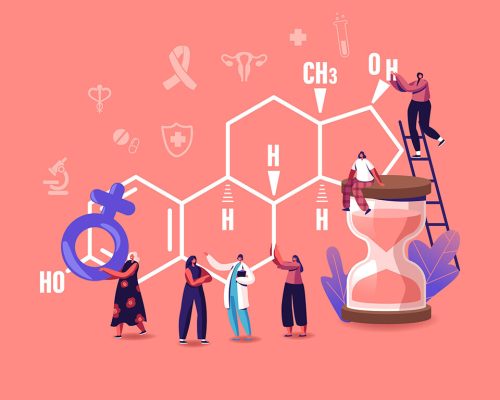Magnesium is often referred to as “the magic mineral” because it has so many health benefits. It is responsible for more than 300 enzyme systems that regulate reactions in the body. However, your body isn’t capable of producing its own magnesium; it must be ingested. It’s important to get it from foods and supplements, or else your body can become easily depleted which can create complications with your health.
The Benefits of Magnesium
Magnesium is needed for protein, DNA, and the antioxidant glutathione synthesis. It also plays an important part in getting energy (glucose) in the bloodstream can be properly absorbed by the muscles, cells, and the livers so that the body can have the energy that it needs to function. Other benefits include:
- Regulates muscle and nerve function
- Regulates blood pressure
- Important for glucose control (blood sugar)
- Promotes overall sense of well-being and calmness
- Very beneficial for constipation
- Helps to eliminate muscle spasms or tics
- Aids in relaxation (Epsom salts are a source of magnesium and can help to relax the body when added to a bath as it is absorbed through the skin)
- Extremely important to bone density/health
- Beneficial for cardiovascular health
- Improves brain health
- Improves cognition
- Good for achy joints and muscles
- Decreases risk of heart attack and stroke
- Regulates heart rhythm
- Helps to reduce insulin resistance
Symptoms of Magnesium Deficiency
Unfortunately, a study conducted by the National Health and Nutrition Examination Survey (NHANEs) found that 48% of Americans are deficient in magnesium. At any given time, there is only 1% of magnesium found in the bloodstream; the remainder is found in the bones and soft tissues. Because the body maintains tight control over maintaining 1% in the blood, it will “pull” magnesium out of the bones, organs, and other soft tissues to maintain that constant 1%. This is why it can be hard to detect magnesium deficiencies through blood serum lab testing, so we also have to look at symptoms, which can include:
- Chronic inflammation, which can cause premature aging and higher blood sugar, insulin, and cortisol levels
- Heart arrhythmias
- Heart palpitations
- Tachycardia (fast heart beat)
- Osteopenia/osteoporosis
- Chronic constipation
- Muscle aches, cramps, tics
- Insomnia
- Low energy and daily fatigue
- Low mood
- High blood pressure
- Anxiety
- Increased cavities
- Higher cortisol levels (which contribute to higher stress levels)
- Muscle spasms, weakness, or stiffness
- Numbness and tingling in the extremities
- Restless leg syndrome
- Increased frequency of migraines
- Increased cavities
There are various things that can cause magnesium deficiencies, and just about all of them are attributed to lack of nutrients in the diet; magnesium can be found in many foods including leafy vegetables, nuts, seeds, avocadoes, fatty fish, quinoa, broccoli, squash, bananas, and legumes of all kinds. However, even incorporating these types of foods doesn’t guarantee that you will get adequate doses of magnesium especially since commercial farming soils are so depleted of minerals and nutrients.
Additionally, millions of Americans rely on the “Standard American Diet” to eat which includes lots of processed foods, sugars and starches, and nutrient-poor food. However, there are other things which can prevent the absorption of magnesium as well such as:
- Long term use of proton pump inhibitors (such as Nexium, etc.) for acid reflux/GERD
- Some medications including types of blood pressure medications, some antibiotics, and birth control pills
- Alcoholism
- Frequent use of steroids
- Insulin resistance
- Type 2 Diabetes
It’s important to note that magnesium supplementation can also interfere with some types of medications, so it is always important to check with your physician or provider before adding a magnesium supplement to your daily regime.
Magnesium Supplementation
One of the first things to do to increase magnesium levels is to incorporate more nutrient-rich foods listed above. However, in most cases, you will likely need a good quality supplement as well. Just as sodium and potassium work together, the same holds true for magnesium and calcium; magnesium should also be taken with a good Vitamin D supplement.
Not everyone will need a calcium supplement (check with your doctor) if magnesium levels and Vitamin D levels are good, however, it is recommended that Vitamin D also be taken with a K-2 supplement. The reason for this is because too much Vitamin D and calcium can cause calcium plaque to accumulate in the arteries and in the organs which is not where you want calcium deposits to build up. Vitamin K-2 is the gate keeper of calcium and channels it into the bones and other areas where it’s needed and prevents from going to the wrong places in the body.
Ideal supplementation levels of magnesium are 400-800 mg per day, and for maximum benefits, it should be taken with Vitamin D3. However, start off with a lower dose and build up slowly over time. The reason for this is because too much magnesium can cause loose bowels. When you reach this point, you want your supplemental intake to be just below that amount to ensure that you’re getting the proper amount, but not having to worry about going to the bathroom over time. But, as your body adjusts, you may be able to increase your dosage.
There are different types of magnesium, and you should take a chelated form. The most easily absorbed are magnesium glycinate and magnesium citrate. It’s worth noting that most multi-vitamins contain magnesium oxide, however this is the least absorbed type of magnesium that is available, so additional supplementation is required.





